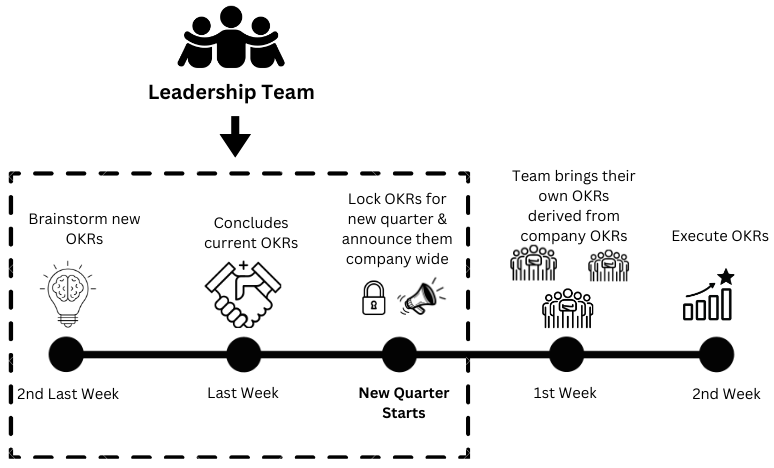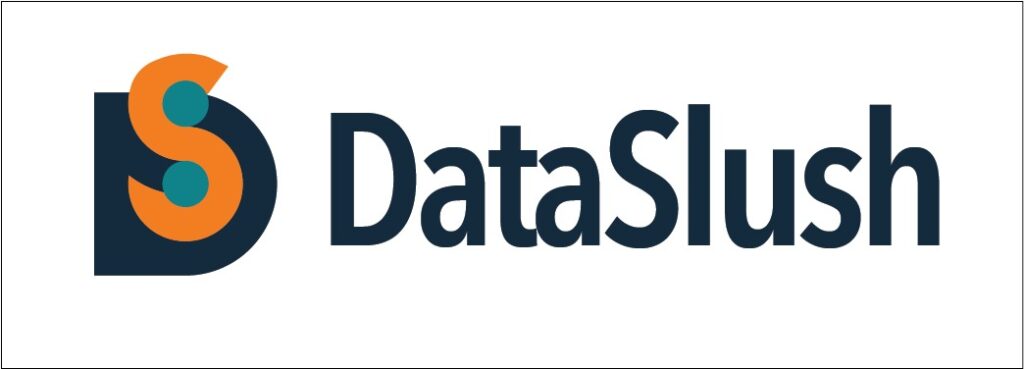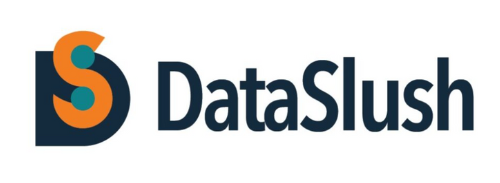Introduction:
It’s been more than 1 year since we started DataSlush(at time of writing this post 🙂 ) with the objective of building the best data team and serving the customers with unparalleled transparency and uncompromising quality. In the Q4 FY 2023-24, we started realising that if we want to scale our operations and grow the business, we truly need to adopt the best practices and keep our focus razor sharp on the important things. I started reading different articles and blog posts and came across a very interesting concept of OKRs (Objectives and Key Results). Insights derived from various articles & books on OKRs completely changed our thought process and we started adopting OKRs. In this blog post, I am going to share our experience on how we started using OKRs as a tool to measure what truly matters for DataSlush.
First attempt to define OKRs
Defining the OKRs is a difficult process and implementing them for the organisation is an even harder process. We had to do multiple rounds of discussions and brainstorming sessions to come up with the initial set of the OKRs. We first attempted to define OKR for Q3 FY 2023-24, It took us almost 3-4 weeks to define the first cut. There are mainly four areas mentioned below for which we wanted to define measurable objectives at organisation level
- Sales target
- Operational excellence
- Hiring
- Brand Building
Here is the example of one of the OKRs that we had set
Objective : Build Operational excellence
KR1 : Implement processes for delivery team to reach 95% on time delivery
KR2 : Implement billable utilisation to 80% through better resource allocation and project management
KR3 : Conduct skill assessment for all employees and develop training plans to address the skill gaps
We further divided the KRs into sub OKRs and asked team members to define their own OKRs aligned with high level OKRs.
What kind of score that we achieved
If you achieve above 0.7 score then you have mastered the OKRs or Objectives that you have set are not difficult ones. To be frank, in our first attempt we were only able to achieve a score of 0.3, which made us realise that all the people in the organisation should be thoroughly aligned with OKRs. However, it was our first attempt, so we just kind of accepted that it’s Okay to fail, this experience will help us become more stronger in our next attempt.
OKRs as our guiding light
Based on the experience from Q3 FY 2023-24 OKRs, we felt that OKRs are our guiding light to scale our organisation, and we all should be able to define OKRs at team/individual level. Having the OKRs defined at team/individual level can definitely help us change our thinking process towards how much we are responsible for the growth of the organisation. So we started defining OKRs for next quarter Q4 FY 2023-24. We revisited our long term vision and started brainstorming internally amongst leadership team, it was very much clear that we wanted to attempt to achieve all the important things that we could not achieve in previous quarter Q3 FY 2023-24 and also take forward other important aspects including enhancing Sales function, research & innovation initiatives and HR processes for Q4 FY 2023-24. Following are the mainly 5 objectives that we have set for Q4 FY 2023-24
1. Enhance sales function & processes to generate $$$K booked revenue
2. Grow brand awareness
3. Build operational excellence
4. Innovating Analytics & AI excellence: Elevate research, nurture knowledge and establish learning culture
5. Setup / Enhance HR & admin function
Process that we follow
In DataSlush, we believe that we all are equally responsible for growing the organisation, so to make our OKR process stronger, the leadership team comes up with their own OKRs which will be then discussed and finalised. Here is illustration of the process that we follow at DataSlush

Conclusion
This is the start of our journey towards becoming OKR driven company, I am gonna write more about our experiences of this journey as we move forward towards achieving the goals. The results that we have seen so far are astonishing and our path is becoming more clear day by day. We strongly believe that OKRs is the way to grow the organisation and do efforts in a disciplined manner, OKRs are helping us to identify where to spend our energy. We are a highly research and experiments driven organisation and OKRs are guiding us on how to balance our business growth and keep on experimenting and innovating.
P.S.
I highly recommend reading the book “Measure What Matters” by John Doerr. It has helped us to define OKRs in a more meaningful way (we are still learning 🙂). We also use this amazing tool SugarOKR to organise OKRs and share with the team. Highly recommended if you have started following OKRs.



Hello Amar,
Appreciate your efforts of sharing one of a new process and thoughts on how to improve the Organization’s growth.
However, reading the entire blog, a Lehman would find it difficult to know what OKRs is?
While it gave some idea that O stands for “Objective”, but KR can be ready as “Key Revenue” or Key Result, or
Even one who is technical but yet non digital background could read “Organization’s Key Resource”
Just a wild thought.
Also this can lead your users who came to read your blog, move out of the blog and land to John Doerr’s article to understand what “OKR” is.(which I did) And thence, the reader may not even come back/forget to read this blog, as that’s a Google Book article. ! (But I came back to this article to complete what I started first. Everyone may not think that way 😬)
So when ever you are writing any short term, try to use full forms or explain once, to make it more meaningful for users who read. Hope this helps.
Happy writing, and wishing you all the best!
Thanks for reading the post and sharing your feedback. I have taken your suggestions into consideration and have updated the content.
Regards,
Amar